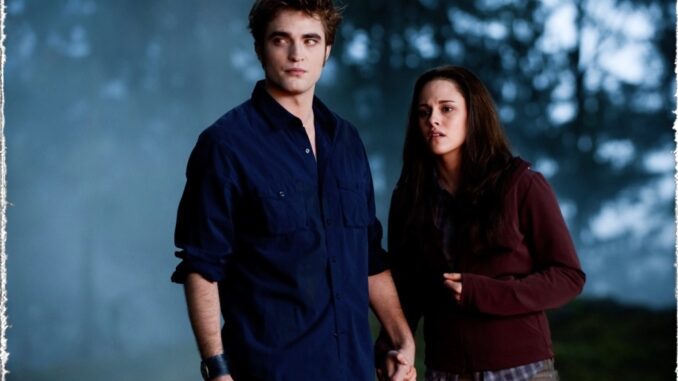
How Twilight changed the world?
The Twilight Saga—comprised of multiple controversial books and movies that have been debated around questions of passivity, female sexuality and consumerism—created a trend within the film world through its marketing efforts and post-feminist qualities. Twilight’s marketing campaign positioned consuming as a way to find personal identity by promoting merchandise and creating a super-fandom space for a female protagonist that spectators can relate to. From the merchandise, to the fan pages and social media obsessions, infatuation with vampires was not just a movement associated with Stephenie Meyer’s series—it was also a way of life, compelling girls and women to form an obsession with the fantasy that for them became a reality. Through this heavily romanticized scheme emerged the larger contemporary vampire culture visible across shows such as The Vampire Diaries (2009–present, CW) and True Blood (2008–2014, HBO). These shows, popular amongst females of all ages from tweens to women, emphasize female sexuality by focusing on the heroine as sexually active protagonist. However, while women appear to maintain control of their identity in these stories, the male gaze within the show continues to behold them as hyper-sexualized beings. Thus, Twilight began the phenomenon of the hyper-sexualized protagonist female, a larger movement toward a sexually saturated femininity, which remained visible in cinematic and televisual vampire tales.

Post-feminism Displayed Through Cinema
The Twilight Saga, written by Stephenie Meyer, offered a good case study for how post-feminism shaped female identity. The saga became a worldwide phenomenon in 2008 when the best-selling novels were adapted for the big screen (four movies in total were released from 2008 to 2012). Bella Swan, played by Kristen Stewart, is a desexualized 17-year-old girl who just moved to Forks, WA. Edward Cullen, played by Robert Pattinson, is an eternally 18-year-old “humane” vampire whose family practices feasting on animals instead of humans. Fitting with post-feminism’s larger trope of equating adulthood with sexualization, Bella’s metamorphosis from teen to adult coincides alongside her graduation and future marriage to Edward. Bella’s sexualization happens later in the books and films, culminating when Edward officially turns her into a vampire just as she gives birth to her child. The timing is significant because she never gains her own identity since she turns into mother immediately when becoming an ‘adult’.
Twilight proved that centering a film around a teenage girl and her journey to a sexualized womanhood could enjoy great dividends at the box office, which promised nothing but success for post-feminist films with a protagonist female lead. Although the series has been debated, defended, and condemned in the popular media for promoting domestic violence, female passivity, and pandering to a young female audience, Twilight, as a marketing behemoth, has provided a model for other franchises to follow.
Strong marketing and public relations campaigns deliberately fostered a “cult” fan base for Edward and Bella that boosted popularity on- and off-screen. In spite of its small budget, the Twilight series went down as one of the highest grossing film franchises in history with a total of $1,363,537,109 earned over the entire series. Twilight proved that by targeting females as a consuming audience, releasing the film at the right time in the thick of post-feminist era, and depicting the right story of the transformation from girl to woman, a movie could change the culture of the film and television industry all while showing the ideologies of post-feminism in the coming age.
The movies and the books follow Bella closely by focusing the narrative through her perspective; the use of first person narration creates a close identification with Bella on the part of her audience. The use of “I” throughout reinforces the sense that this franchise specifically targets women and thus establishes the female as a consumer. Mendelson marks how the female audience played an important role in the ticket sales and franchise success.
